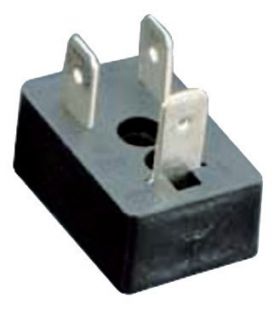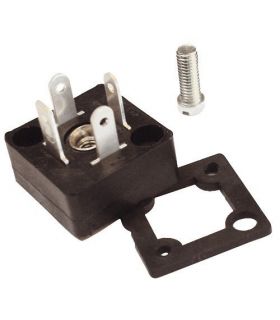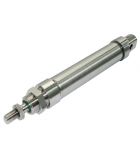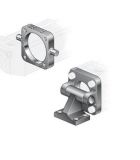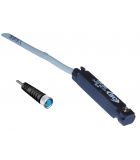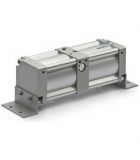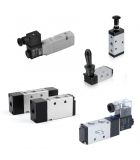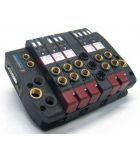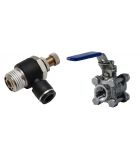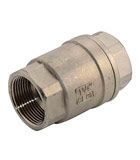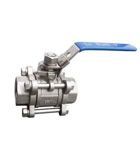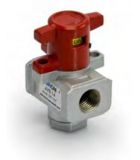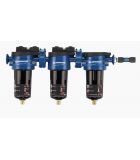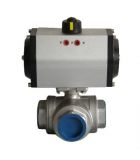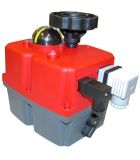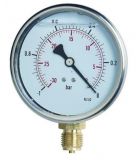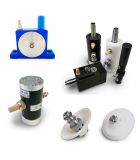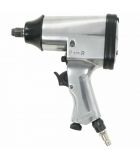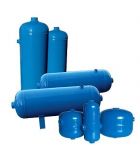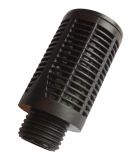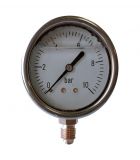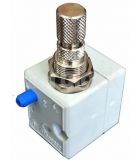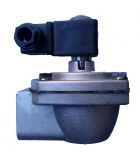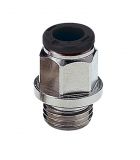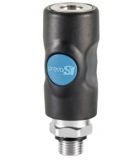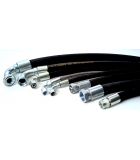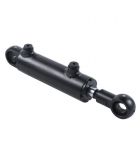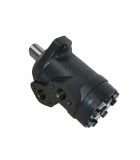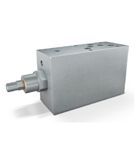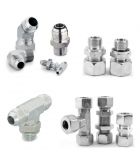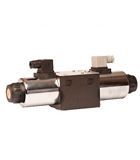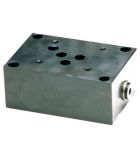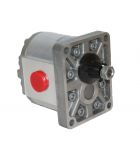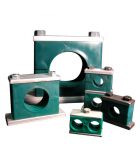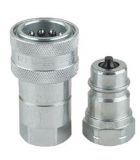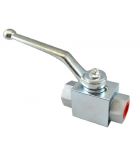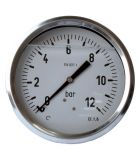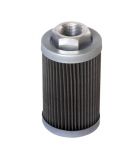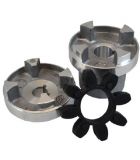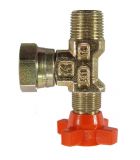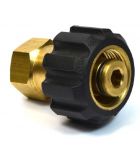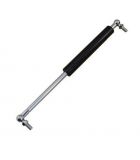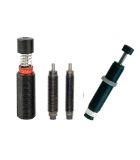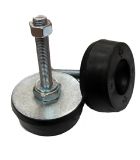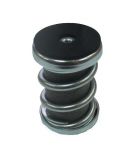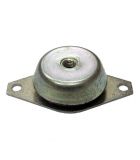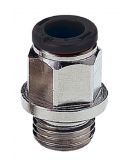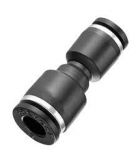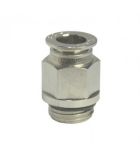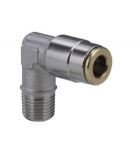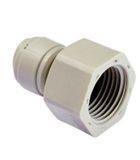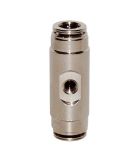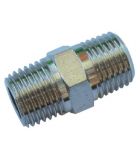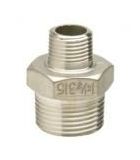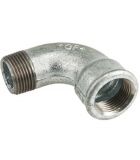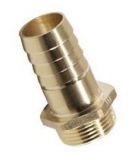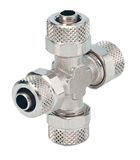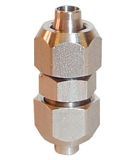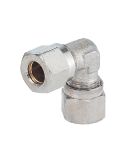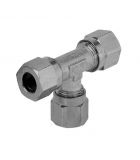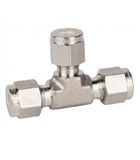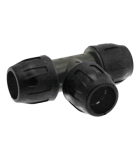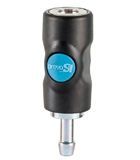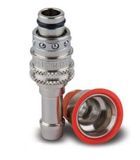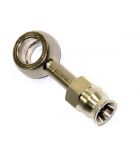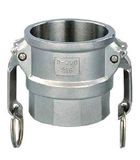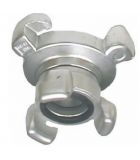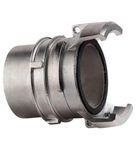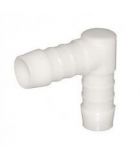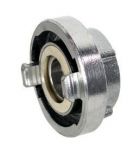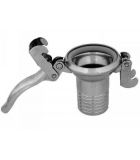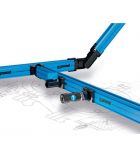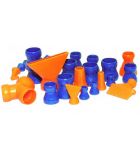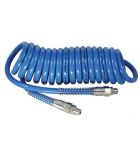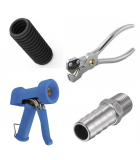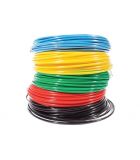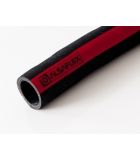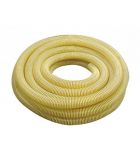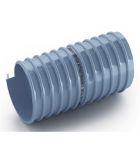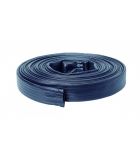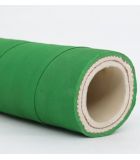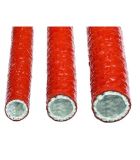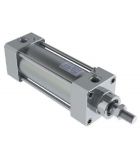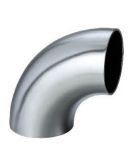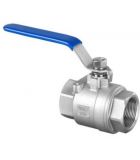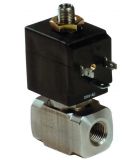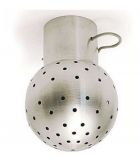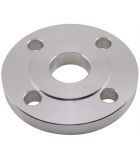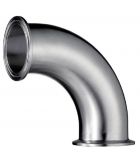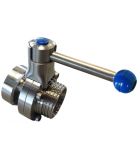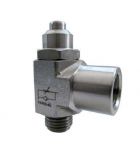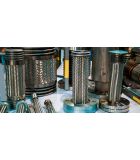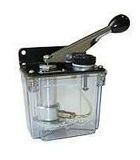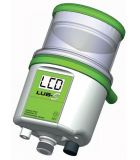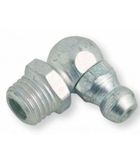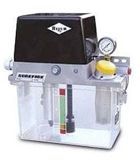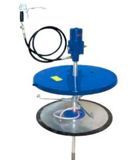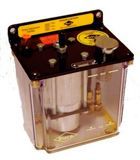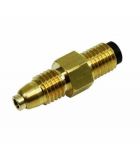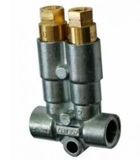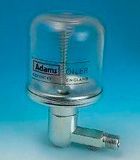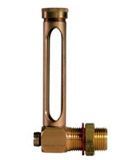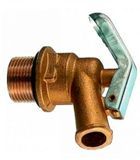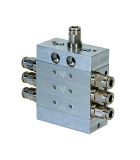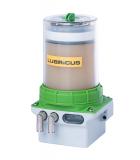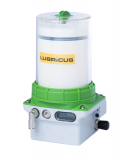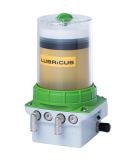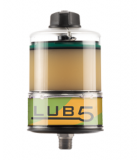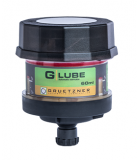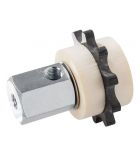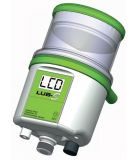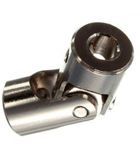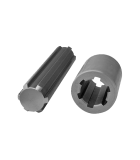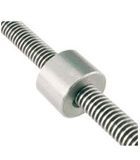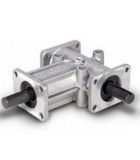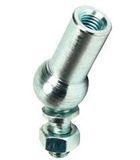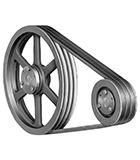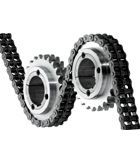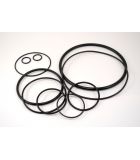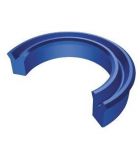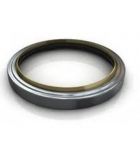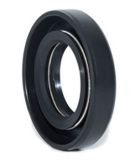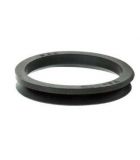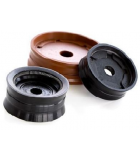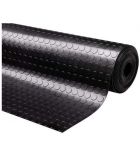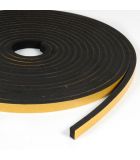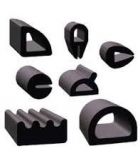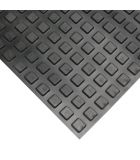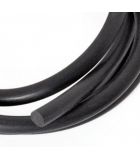PNEUMATIC SOLENOID VALVES
Subcategories
-
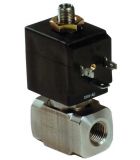
STAINLESS SOLENOID VALVES
<h2>Pneumatic Stainless Solenoid Valves. Buy them online at the best price</h2><p> Stainless solenoid valves are electric valves used in a wide variety of industrial and fluid processing applications. These valves are made of stainless steel, with various types of qualities, which makes them resistant to corrosion and oxidation, making them suitable for applications in aggressive environments.</p><p> Stainless solenoid valves operate by applying an electrical signal, which controls the position of the valve. This allows it to be opened or closed to control the flow of liquids or gases in a piping system.</p><p> There are different types of stainless solenoid valves available, including solenoid valves, pilot valves, butterfly valves, etc. All these types of valves are available in different sizes and various types of seal or membrane materials, and can be adapted to a wide variety of applications and technical requirements.</p><p> It is important to note that stainless solenoid valves must be selected and used properly to ensure safe and efficient operation. Therefore, it is advisable to work with a reliable supplier and follow the manufacturer's instructions to ensure proper installation and use of the valve.</p><p> Depending on the model, it can withstand a lot of pressure and temperature. Stainless solenoid valves have a wide range of applications due to their corrosion and oxidation resistance properties.</p><p> Some of the common applications include:</p><ul style="list-style-type:disc;"><li> Food and Beverage Processing: Stainless solenoid valves are used in the food and beverage industry to control the flow of liquids and gases in food and beverage processing applications.</li><li> Chemical Processing: Stainless solenoid valves are suitable for chemical processing applications due to their resistance to corrosive chemicals.</li><li> Petrochemical Industry: Stainless solenoid valves are used in the petrochemical industry to control the flow of fluids and gases in oil and gas production and processing applications.</li><li> Marine Installations: Stainless solenoid valves are used in marine installations to control the flow of fluids and gases in offshore applications.</li><li> Pharmaceutical Industry: Stainless solenoid valves are used in the pharmaceutical industry to control the flow of liquids and gases in drug processing applications.</li><li> Water Treatment Facilities: Stainless solenoid valves are used in water treatment facilities to control the flow of water in the treatment process.</li><li> Energy installations: Stainless solenoid valves are used in energy installations to control the flow of fluids and gases in energy production and distribution applications.</li></ul><p> These are just a few of the applications for stainless solenoid valves, and there are many more depending on the industry and specific application needs.</p> -
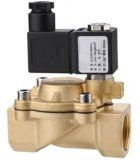
PNEUMATIC SOLENOID VALVES ASSISTED CONTROL
<h2>PNEUMATIC SOLENOID VALVES ASSISTED CONTROL</h2><p></p><p> Power assisted solenoid valves are electric valves used in a wide variety of industrial and fluid processing applications. These valves are made of brass, which makes them resistant to corrosion and oxidation, making them suitable for outdoor applications.</p><p> Assisted control solenoid valves operate by applying an electrical signal, which controls the position of the valve. This allows it to be opened or closed to control the flow of liquids or gases in a piping system.</p><p> There are different types of solenoid valves available, and they can be adapted to a wide variety of applications and technical requirements. It is important to highlight that assisted control solenoid valves must be selected and used appropriately to guarantee safe and efficient operation. Therefore, it is advisable to work with a reliable supplier and follow the manufacturer's instructions to ensure proper installation and use of the valve.</p><p> Depending on the model, it can withstand pressures of up to 10-15 bar. These solenoid valves require a minimum operating pressure, about 0.2-0.5 bar, otherwise the core will not open. In the assisted control solenoid valve, the solenoid does not control the valve directly, but rather the solenoid controls a secondary pilot valve and the energy to operate the main valve is supplied by the pressure of the fluid itself.</p><p> Some of the common applications include:</p><ul style="list-style-type:disc;"><li> Food and Beverage Processing: Power assisted solenoid valves are used in the food and beverage industry to control the flow of liquids and gases in food and beverage processing applications.</li><li> Chemical Processing: Power assisted solenoid valves are suitable for chemical processing applications due to their resistance to corrosive chemicals.</li><li> Petrochemical Industry: Power assisted solenoid valves are used in the petrochemical industry to control the flow of fluids and gases in oil and gas production and processing applications.</li><li> Marine Installations: Power assisted solenoid valves are used in marine installations to control the flow of fluids and gases in offshore applications.</li><li> Pharmaceutical Industry: Power assisted solenoid valves are used in the pharmaceutical industry to control the flow of liquids and gases in processing applications.</li><li> Water treatment facilities: Assisted control solenoid valves are used in water treatment facilities to control the flow of water in the treatment process.</li><li> Power installations: Assisted control solenoid valves are used in power installations to control the flow of fluids and gases in energy production and distribution applications.</li></ul><p> These are just a few of the applications for power-operated solenoid valves, and there are many more depending on the industry and specific application needs.</p> -
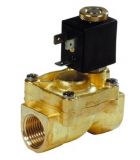
ASSISTED CONTROL SOLENOID VALVE N.OPEN
-
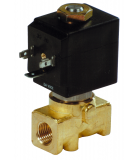
DIRECT CONTROL SOLENOID VALVE
<h2>Direct Control Solenoid Valves. Buy online at the best price</h2><p> Direct-operated solenoid valves are electric valves used in a wide variety of industrial and fluid processing applications. These valves are made of brass, which makes them resistant to corrosion and oxidation, making them suitable for outdoor applications.</p><p> Direct control solenoid valves operate by applying an electrical signal, which controls the position of the valve. This allows it to be opened or closed to control the flow of liquids or gases in a piping system.</p><p> There are different types of solenoid valves available, and they can be adapted to a wide variety of applications and technical requirements. It is important to note that direct-operated solenoid valves must be selected and used appropriately to ensure safe and efficient operation. Therefore, it is advisable to work with a reliable supplier and follow the manufacturer's instructions to ensure proper installation and use of the valve.</p><p> Depending on the model, it can withstand pressures of up to 10-15 bar. These solenoid valves do not require a minimum operating pressure, since the coil is what opens the core directly.</p><p> In the direct control solenoid valve the solenoid controls the valve directly. It requires a little more power in the coil to perform this function and has the advantage that it can work at 0 pressure.</p><p> Some of the common applications include:</p><ul style="list-style-type:disc;"><li> Food and Beverage Processing: Direct-operated solenoid valves are used in the food and beverage industry to control the flow of liquids and gases in food and beverage processing applications.</li><li> Chemical Processing: Direct-operated solenoid valves are suitable for chemical processing applications due to their resistance to corrosive chemicals.</li><li> Petrochemical Industry: Direct-operated solenoid valves are used in the petrochemical industry to control the flow of fluids and gases in oil and gas production and processing applications.</li><li> Marine Installations: Direct-operated solenoid valves are used in marine installations to control the flow of fluids and gases in offshore applications.</li><li> Pharmaceutical Industry: Direct-operated solenoid valves are used in the pharmaceutical industry to control the flow of liquids and gases in processing applications.</li><li> Water Treatment Facilities: Direct-operated solenoid valves are used in water treatment facilities to control the flow of water in the treatment process.</li><li> Power Facilities: Direct-operated solenoid valves are used in power facilities to control the flow of fluids and gases in power production and distribution applications.</li></ul><p> These are just a few of the applications for power-operated solenoid valves, and there are many more depending on the industry and specific application needs.</p> -
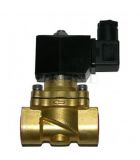
MIXED CONTROL SOLENOID VALVE
<h2>MIXED CONTROL PNEUMATIC SOLENOID VALVES</h2><p> Mixed control solenoid valves are electric valves used in a wide variety of industrial and fluid processing applications. These valves are made of brass, which makes them resistant to corrosion and oxidation, making them suitable for outdoor applications.</p><p> Mixed control solenoid valves operate by applying an electrical signal, which controls the position of the valve. This allows it to be opened or closed to control the flow of liquids or gases in a piping system.</p><p> There are different types of solenoid valves available, and they can be adapted to a wide variety of applications and technical requirements. It is important to highlight that mixed control solenoid valves must be selected and used appropriately to guarantee safe and efficient operation. Therefore, it is advisable to work with a reliable supplier and follow the manufacturer's instructions to ensure proper installation and use of the valve.</p><p> Mixed control solenoid valves, also known as combined control, do not require a differential pressure for their correct operation. Preferable mounting position horizontal fluid passage. It is possible to change the coil without having to dismantle the valve. Solve the problem of fluid opening and closing when the pressure is very low, even without pressure. Special for liquids, membrane closure. Maximum admitted viscosity: 5º Engler</p><p> Some of the common applications include:</p><ul style="list-style-type:disc;"><li> Food and Beverage Processing: Mixed control solenoid valves are used in the food and beverage industry to control the flow of liquids and gases in food and beverage processing applications.</li><li> Chemical Processing: Mixed control solenoid valves are suitable for chemical processing applications due to their resistance to corrosive chemicals.</li><li> Petrochemical Industry: Mixed control solenoid valves are used in the petrochemical industry to control the flow of fluids and gases in oil and gas production and processing applications.</li><li> Marine Installations: Mixed control solenoid valves are used in marine installations to control the flow of fluids and gases in offshore applications.</li><li> Pharmaceutical Industry: Mixed control solenoid valves are used in the pharmaceutical industry to control the flow of liquids and gases in processing applications.</li><li> Water treatment facilities: Mixed control solenoid valves are used in water treatment facilities to control the flow of water in the treatment process.</li><li> Energy installations: Mixed control solenoid valves are used in energy installations to control the flow of fluids and gases in energy production and distribution applications.</li></ul><p> These are just some of the applications for mixed control solenoid valves, and there are many more depending on the industry and specific application needs.</p> -
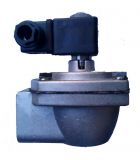
BLOW VALVES
<h2>Blow-off solenoid valves. Buy online with 24/48 hour shipping.</h2><p> Blow valves and bag filters are components used in air filtration systems, such as industrial fume and dust collection systems.</p><p> The operation is as follows:</p><p> Blow-off valves: Also known as bag cleaning valves or pulse valves, they are devices used for the automatic cleaning of bag filters. These valves are designed to quickly release a jet of compressed air inside the filter sleeves, generating a pressure wave that dislodges the dust accumulated on their surface. This cleaning process is performed periodically to maintain the efficiency of the filtration system.</p><p> And bag filters are filtration systems used to capture solid particles suspended in the air, such as dust, smoke or ash. They consist of a series of sleeves or tubes of filter cloth arranged vertically in a structure. Contaminated air enters the system and passes through the sleeves, while particles are captured on the outer surface of the sleeves. Subsequently, the clean air is released into the environment. To maintain system efficiency, it is necessary to periodically clean the bags using the blow-off valves.</p><p> In summary, blow-off valves are devices used to clean bag filters in industrial air filtration systems. Together, these components help ensure efficient performance and good air quality in work environments.</p><p> The bag filter solenoid valves are made of brass or aluminum and are controlled through either a pneumatic signal or an electrical signal through a coil at different voltages to choose from. The opening and closing is carried out by means of a membrane or diaphragm, which can be made of NBR or VITON.</p><p> There are many sizes and we have the option of selecting the valve with thread or with compression fitting. Its body with square holes allows a high flow rate, the springless construction, and the specially studied membrane device gives it the operating characteristics necessary for bag filter blowing installations.</p><p> A whole series of blowing solenoid valves can be controlled using a timer, which automates the activation time and period. These valves have the function of quickly injecting compressed air into the filters to loosen and eliminate accumulated dust, thus maintaining the efficiency of the filtration system.</p><p> Common applications of baghouse blow-off valves:</p><ul style="list-style-type:disc;"><li> <strong>Cement industry:</strong> In cement plants, large amounts of dust are generated during the production and material handling processes. Bag filter blow-off valves are used to keep dust collector filters clean, preventing clogging and ensuring efficient operation.</li><li> <strong>Steel industry:</strong> In blast furnaces and other steel production areas, fumes and dust particles are generated that must be captured to maintain a safe work environment and comply with environmental regulations. Baghouse blow-off valves are essential for the proper functioning of the filtration systems used in these facilities.</li><li> <strong>Chemical and pharmaceutical industry:</strong> In chemical and pharmaceutical processes, toxic or dangerous substances can be generated, as well as fine dusts that must be captured to avoid air pollution and protect the health of workers. Baghouse blow-off valves are used to keep filtration systems clean and ensure adequate air quality in these industries.</li><li> <strong>Food Processing Industry:</strong> In food processing facilities, it is important to maintain a clean, contaminant-free environment to ensure the safety and quality of food products. Bag filter blow valves are used in filtration systems to remove dust particles and other contaminants that may affect food quality.</li></ul> -
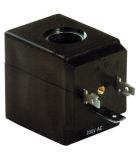
COILS AND CONNECTORS
Pneumatic solenoid valves. Buy them online at the best price
Pneumatic solenoid valves are the variant of an electromechanical valve generally used to control the flow of a liquid or gas. There are different types of solenoid valves, although the most important variants are servo-assisted and direct-acting solenoid valves.
Servo-assisted valves are the most widely used, and use pressure from the same line of the system to open and close the main orifice of the valve body.
Direct acting solenoid valves directly open or close the valve body orifice, which represents the only flow path inside the valve. They are used in systems that require low flow capacities or in low pressure applications, since they can open without pressure.
Pneumatic solenoid valves can have many variants and configurations. It can be 2 or 3 ways. Normally open or normally closed. They are activated and deactivated by a solenoid, through electrical impulses. This generates a magnetic field that displaces a nucleus, opening or closing the passage hole.
Solenoid valves are the most frequently used control elements in fluid technology. They are typically used to cut, release, dispense, distribute or mix fluids. That is why they can be found in many areas of application. The solenoid valves provide fast and safe switching, high durability and reliability, low control power and a compact design.
The extensive range of applications such as; water supply and treatment, refrigeration, fuels, gases, process control, bag filter blowing, cryogenics, food, compressed air, chemicals

